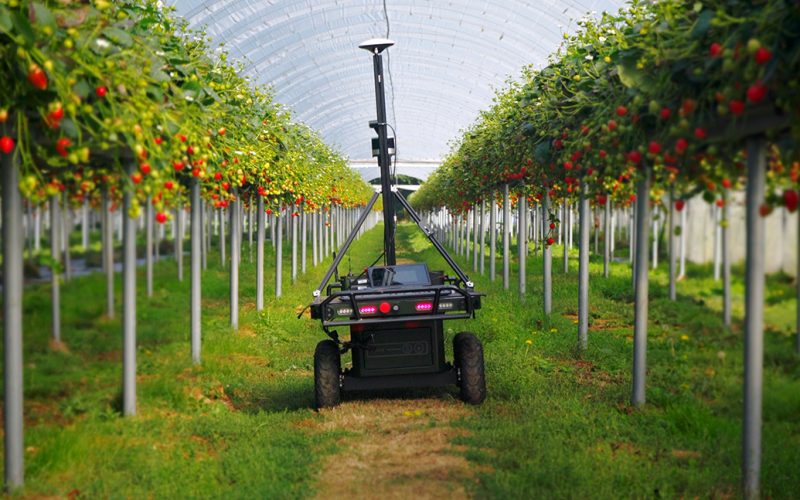The UK Agri-Tech Centre has welcomed the UK government’s recent launch of the Regulatory Innovation Office (RIO), which has been established to help bring the UK’s most promising technologies to the market faster. Announced by the Science Secretary, the Rt Hon Peter Kyle MP, this new office aims to reduce regulatory barriers and provide regulatory certainty making it easier for businesses with emerging technologies to innovate and grow.
The establishment of the RIO is particularly important for sectors like agriculture, where innovation plays a key role in addressing major challenges such as food security and climate change. However, regulatory frameworks for agri-tech innovations can be complex or span several regulators, making them difficult to navigate.
The UK Agri-Tech Centre, which is a hub of collaboration and innovation within the agri-tech sector, will work with businesses, regulators and government departments to identify those regulatory barriers that need addressing to drive the industry forward.
Accelerating agri-tech ambition with the Regulatory Innovation Office
In recent years, the agri-tech sector has made remarkable strides in developing advanced technologies such as engineering biology, artificial intelligence (AI), and autonomous systems. These innovations have the potential to revolutionise how we produce food, manage land and respond to environmental challenges. However, as with any rapidly evolving sector, innovation can often outpace regulation.
Dr. Grace O’Gorman, Head of External Affairs at the UK Agri-Tech Centre, said:
“We welcome the UK Government’s launch of the RIO and its emphasis on engineering biology, space, artificial intelligence, and connected and autonomous technology.
These are areas which are already yielding benefits for the agri-industries, but there are barriers in the regulatory framework that need to be addressed to accelerate innovation.”
The UK Agri-Tech Centre
As a key player in the agri-tech landscape, the UK Agri-Tech Centre connects industry stakeholders—ranging from researchers and technology developers to farmers and food producers. Its role is to strengthen these connections to help drive agri-tech innovation and adoption.
Dr. O’Gorman said:
“The work of the UK Agri-Tech Centre spans the entire agri-industry innovation ecosystem and we work with numerous project partners, researchers, technology developers and end-users, enabling us to inform regulatory processes and priorities comprehensively.
We are committed to working closely with innovative businesses, government departments and regulators to drive responsible innovation and growth across the sector supported by regulatory certainty. ”
A collaborative path to net zero
The UK’s commitment to achieving net zero by 2050 means that every sector must innovate and adapt and agriculture is no exception. Technologies that reduce emissions, enhance resource efficiency and support sustainable farming practices will be key to meeting this goal.
However, for these technologies to make a real impact, the regulatory framework must be progressive and robust to support a vibrant UK innovation ecosystem. By collaborating with the RIO and other government bodies, the UK Agri-Tech Centre is positioned to help the agri-tech sector overcome regulatory barriers and continue driving forward with innovations that will secure the future of food production, contribute to economic growth and support environmental sustainability.
“We look forward to supporting the work of the RIO and to continuing our collaboration with government departments and regulators in key areas,” Dr. O’Gorman added.
